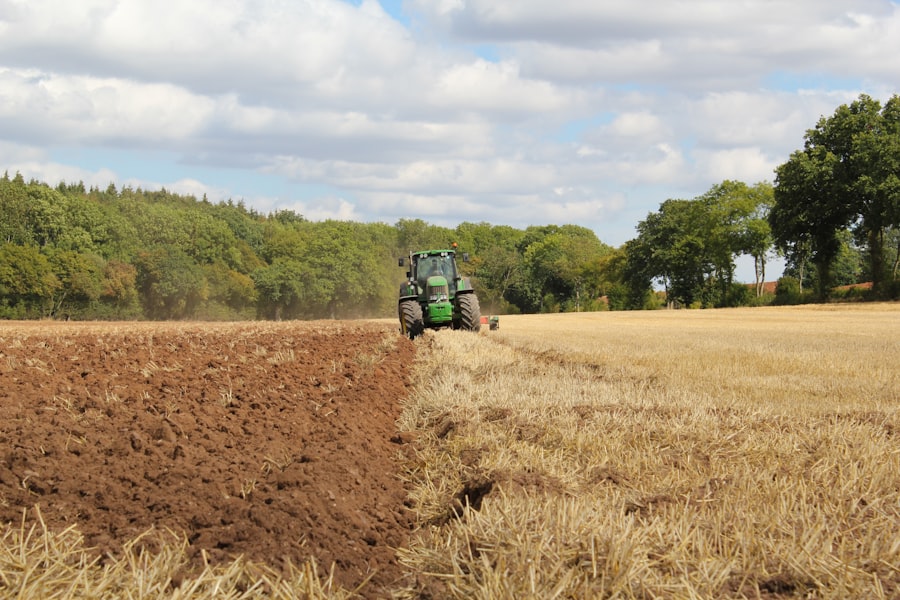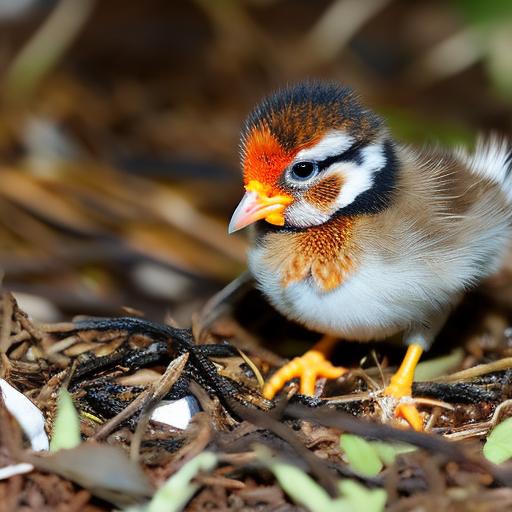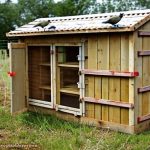Chicken deaths in coops are a common occurrence that can be distressing for poultry owners. Understanding the causes of these deaths is crucial in order to prevent future occurrences and ensure the health and well-being of the chickens. By identifying and addressing the factors that contribute to chicken deaths, poultry owners can create a safe and nurturing environment for their flock.
Key Takeaways
- Understanding the causes of death in chickens is crucial for preventing future losses.
- Insufficient heating in the coop can lead to hypothermia and death in chickens.
- Overcrowding in the coop can cause stress, disease, and even suffocation in chickens.
- Poor ventilation in the coop can lead to respiratory problems and death in chickens.
- Providing clean water, adequate nutrition, and protection from disease, parasites, and predators is essential for keeping chickens healthy and alive.
Understanding the Causes of Death
There are several factors that can contribute to chicken deaths in coops. These include insufficient heating, overcrowding, poor ventilation, lack of access to clean water, inadequate nutrition and feeding, diseases and parasites, and predators. While some of these factors may be unavoidable, many can be prevented with proper care and attention.
Insufficient Heating in the Coop
Insufficient heating in the coop can lead to chicken deaths, especially during colder months. Chickens are susceptible to cold temperatures and can suffer from hypothermia if not provided with adequate warmth. This is particularly true for young chicks and older chickens who may have a harder time regulating their body temperature.
To properly heat a coop during colder months, it is important to provide a heat source such as a heat lamp or a radiant heater. The temperature inside the coop should be maintained between 50-70 degrees Fahrenheit. It is also essential to insulate the coop and seal any drafts to prevent cold air from entering. Additionally, providing extra bedding such as straw or wood shavings can help keep the chickens warm.
Overcrowding in the Coop
Overcrowding in the coop can lead to stress and disease in chickens, ultimately resulting in death. When chickens are overcrowded, they have limited space to move around and may become aggressive towards each other. This can lead to pecking and fighting, causing injuries that can become infected.
To properly space out chickens in a coop, it is recommended to provide at least 4 square feet of space per chicken. This allows them to move around freely and reduces the likelihood of aggression. It is also important to provide enough perches and nesting boxes for the chickens to rest and lay eggs comfortably. Regularly cleaning the coop and removing any waste or debris can also help prevent the spread of diseases.
Poor Ventilation in the Coop
Poor ventilation in the coop can lead to respiratory issues in chickens, which can be fatal if left untreated. When the air inside the coop becomes stagnant and humid, it creates an ideal environment for bacteria and fungi to thrive. This can result in respiratory infections such as bronchitis or pneumonia.
To properly ventilate a coop, it is important to provide adequate airflow without causing drafts. This can be achieved by installing vents or windows that can be opened and closed as needed. It is also important to regularly clean the coop and remove any bedding or waste that may contribute to poor air quality. Providing fresh air and reducing humidity levels can help prevent respiratory issues in chickens.
Lack of Access to Clean Water

Lack of access to clean water can lead to dehydration and death in chickens. Water is essential for chickens to stay hydrated, regulate their body temperature, and aid in digestion. Without access to clean water, chickens may become dehydrated, which can lead to organ failure and death.
To ensure chickens have access to clean water at all times, it is important to provide fresh water daily and clean the water containers regularly. Water containers should be placed at a height that is easily accessible for the chickens, but not easily contaminated by droppings or bedding. It is also important to monitor water consumption and check for any signs of dehydration such as lethargy or sunken eyes.
Inadequate Nutrition and Feeding
Inadequate nutrition and feeding can lead to health issues and death in chickens. Chickens require a balanced diet that includes a combination of grains, proteins, vitamins, and minerals. Without proper nutrition, chickens may suffer from malnutrition, weakened immune systems, and poor egg production.
To properly feed and supplement a chicken’s diet, it is important to provide a balanced feed that is appropriate for their age and purpose (e.g., laying hens or meat birds). Additionally, chickens should have access to fresh greens, fruits, and vegetables to supplement their diet. It is also important to provide grit and oyster shell for proper digestion and eggshell formation. Regularly monitoring the chickens’ body condition and adjusting their feed as needed can help prevent nutritional deficiencies.
Disease and Parasites
Diseases and parasites can spread quickly in a coop and lead to death in chickens. Common diseases include coccidiosis, Marek’s disease, and avian influenza. Parasites such as mites, lice, and worms can also cause health issues and weaken the chickens’ immune system.
To prevent diseases and parasites in chickens, it is important to practice good biosecurity measures such as quarantining new birds before introducing them to the flock. Regularly cleaning the coop and disinfecting surfaces can also help prevent the spread of diseases. Additionally, providing regular veterinary care and administering vaccinations or deworming treatments can help protect the chickens from common illnesses.
Predators and Security Measures
Predators can easily access and harm chickens in a coop if it is not properly secured. Common predators include raccoons, foxes, coyotes, snakes, and birds of prey. These predators can cause stress, injury, or death to the chickens.
To properly secure a coop and protect chickens from predators, it is important to use sturdy fencing that extends underground to prevent digging. Installing hardware cloth or wire mesh around the coop can also help keep predators out. Additionally, providing a secure locking mechanism for doors and windows can prevent predators from gaining access. Regularly inspecting the coop for any signs of damage or potential entry points can help ensure the safety of the chickens.
Conclusion and Preventive Measures
In conclusion, understanding the causes of chicken deaths in coops is essential for preventing future occurrences. By addressing factors such as insufficient heating, overcrowding, poor ventilation, lack of access to clean water, inadequate nutrition and feeding, diseases and parasites, and predators, poultry owners can create a safe and nurturing environment for their flock.
To prevent chicken deaths in coops, it is important to prioritize the well-being of the chickens and take necessary steps to ensure their health and safety. This includes providing proper heating, spacing out chickens, ensuring proper ventilation, providing access to clean water, offering a balanced diet, practicing good biosecurity measures, and securing the coop from predators.
By implementing these preventive measures and regularly monitoring the health and well-being of the chickens, poultry owners can minimize the risk of chicken deaths in coops and create a thriving and sustainable flock.
If you’re struggling with the unfortunate issue of baby chickens keep dying, it’s crucial to examine all aspects of their environment. One key factor that often gets overlooked is the insulation of the chicken coop. Insulating the coop can help regulate temperature and protect the chicks from extreme weather conditions. To learn more about how to properly insulate a chicken coop, check out this informative article on Poultry Wizard: How to Insulate a Chicken Coop. Additionally, if you’re unsure about where to position your chicken coop for optimal safety and comfort, this article on Poultry Wizard provides valuable insights: Where to Put Chicken Coop. Lastly, if you’re considering converting a shed into a chicken coop, this resourceful article on Poultry Wizard offers step-by-step guidance: Turning a Shed into a Chicken Coop. By addressing these important factors, you can create a healthier and safer environment for your baby chickens.
FAQs
What are some common reasons why baby chickens die?
Some common reasons why baby chickens die include inadequate nutrition, dehydration, exposure to extreme temperatures, disease, and genetic defects.
How can I prevent baby chickens from dying?
To prevent baby chickens from dying, ensure that they have access to clean water and a balanced diet, keep them in a warm and dry environment, and regularly monitor them for signs of illness. It is also important to purchase chicks from a reputable source and to practice good biosecurity measures to prevent the spread of disease.
What should I do if my baby chickens are dying?
If your baby chickens are dying, it is important to identify the cause of the problem and take appropriate action. This may involve consulting with a veterinarian or poultry expert, adjusting their diet or environment, or administering medication to treat an illness.
Can baby chickens die from stress?
Yes, baby chickens can die from stress. Stress can weaken their immune system and make them more susceptible to illness. Stressful situations for baby chickens can include overcrowding, sudden changes in temperature or environment, and exposure to predators or other threats.
How long do baby chickens typically live?
The lifespan of a baby chicken can vary depending on a number of factors, including breed, environment, and care. On average, baby chickens can live anywhere from a few days to several years.
Meet Walter, the feathered-friend fanatic of Florida! Nestled in the sunshine state, Walter struts through life with his feathered companions, clucking his way to happiness. With a coop that’s fancier than a five-star hotel, he’s the Don Juan of the chicken world. When he’s not teaching his hens to do the cha-cha, you’ll find him in a heated debate with his prized rooster, Sir Clucks-a-Lot. Walter’s poultry passion is no yolk; he’s the sunny-side-up guy you never knew you needed in your flock of friends!







